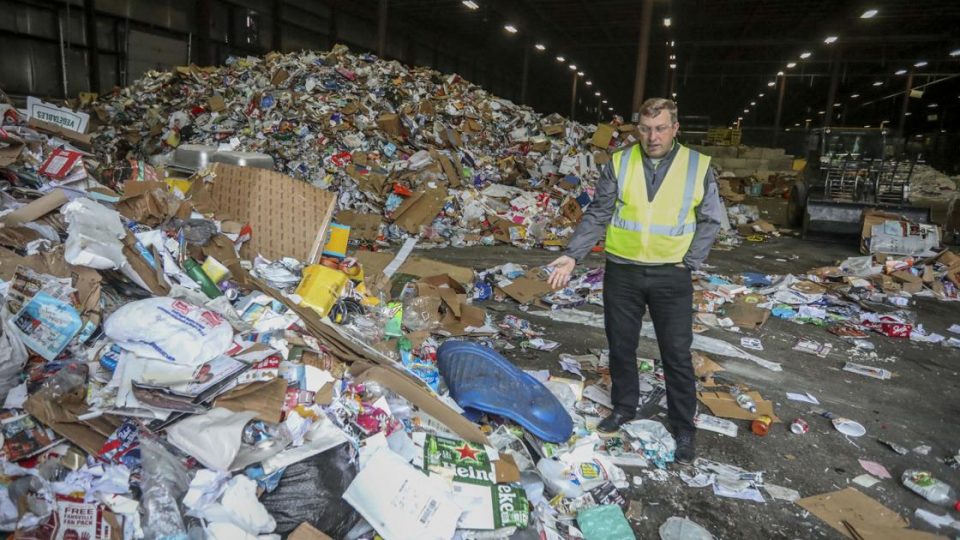If she forgets her reusable grocery bags, Nilles opts not to bag her items at all rather than use plastic.
“I can’t stand when people tell me, ‘I’m getting a plastic bag because I’m going to use it to line my garbage cans,’” she said. “At the end of the day those bags don’t get recycled.”
The ultimate solution, she said, is to reduce the use of items that will lead to waste, rather than relying solely on recycling.
A 2019 IEPA survey found that an average of 15% to 20% of the items in recycling bins across the state were considered contaminants, Jennings said.
“We were able to determine most of the contamination were items that were close, but not exactly recyclable,” he said. Plastic bags are also a major problem, he noted.
China’s new standards draw attention to those problems.
“The issue with China is that they were more of a catalyst that started the change in the recycling markets,” said Mark Nighbor, vice president of marketing and communications for garbage hauler Advanced Disposal. “Realistically, what they did was, they said ‘Because of the amount of contamination in recycling materials, we are going to establish certain levels of, in essence, of quality.’”
Jennings said the new policy could be viewed as highlighting “very real problems” that had become ingrained in the U.S. recycling systems, which were shipping off unusable material to the foreign market.


